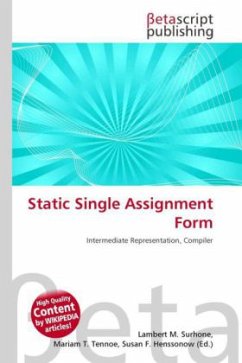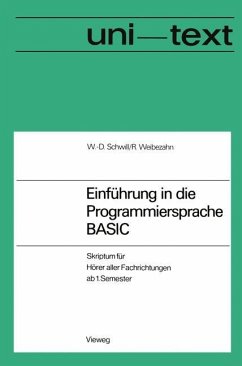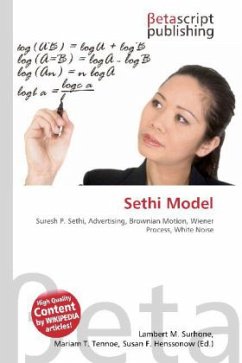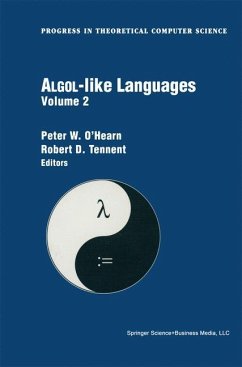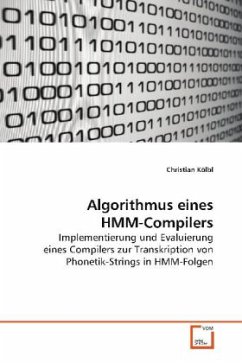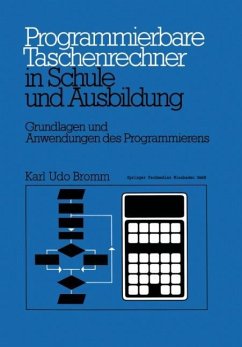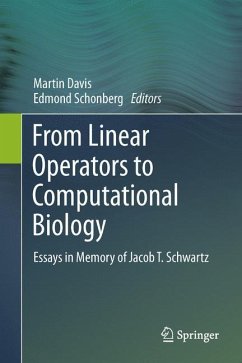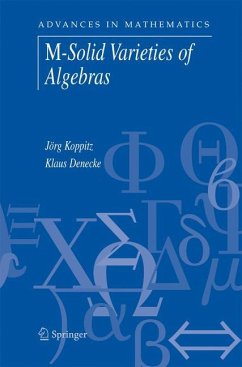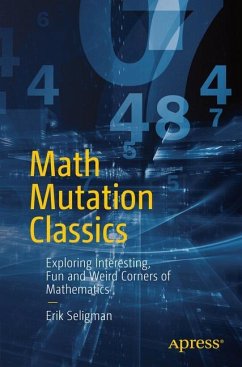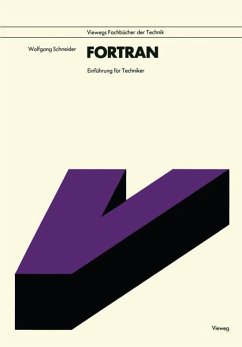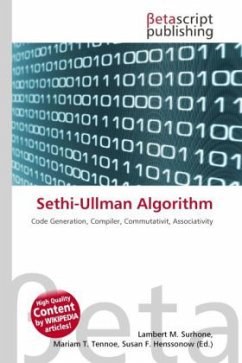
Sethi-Ullman Algorithm
Versandfertig in 6-10 Tagen
22,99 €
inkl. MwSt.

PAYBACK Punkte
11 °P sammeln!
High Quality Content by WIKIPEDIA articles! When generating code for arithmetic expressions, the compiler has to decide which is the best way to translate the expression in terms of number of instructions used as well as number of registers needed to evaluate a certain subtree (especially if free registers are scarce). The Sethi-Ullman algorithm (also known as Sethi-Ullman numbering) fulfills the property of producing code which needs the least number of instructions possible as well as the least number of storage references (under the assumption that at the most commutativity and associativit...
High Quality Content by WIKIPEDIA articles! When generating code for arithmetic expressions, the compiler has to decide which is the best way to translate the expression in terms of number of instructions used as well as number of registers needed to evaluate a certain subtree (especially if free registers are scarce). The Sethi-Ullman algorithm (also known as Sethi-Ullman numbering) fulfills the property of producing code which needs the least number of instructions possible as well as the least number of storage references (under the assumption that at the most commutativity and associativity apply to the operators used, but distributive laws i.e. a b + a c = a (b + c) do not hold). Please note that the algorithm succeeds as well if neither commutativity nor associativity hold for the expressions used, and therefore arithmetic transformations can not be applied.



